In the timeless epic of Beowulf, we are transported to a world of heroic warriors, terrifying monsters, and noble quests. This enthralling tale of adventure and bravery follows the legendary hero, Beowulf, as he embarks on a perilous journey to rid the kingdom of Denmark from the monstrous grip of Grendel and his vengeful mother. With its rich tapestry of action, mythos, and the battle between good and evil, the story of Beowulf captures the imagination and reminds us of the timeless power of heroism. Join us as we delve into the captivating story of Beowulf: A Hero’s Journey, step-by-step, unraveling the intricacies of this ancient tale.
Contents
- The Main Characters
- The Call to Adventure
- The Hero’s Journey Begins
- The Abyss
- The Transformation and Atonement
- Rebirth and the Return
- Conclusion
-
Frequently Asked Questions
- 1. Who is Beowulf?
- 2. What is the story of Beowulf about?
- 3. Who is Grendel?
- 4. What is the significance of Grendel’s attacks?
- 5. Who is Grendel’s Mother?
- 6. What is the “Abyss” in the story?
- 7. How does Beowulf’s journey end?
- 8. What is Beowulf’s legacy?
- 9. How does the story of Beowulf reflect Anglo-Saxon culture?
- 10. What makes Beowulf a classic hero’s journey?
- References
-
Frequently Asked Questions
- 1. Who is the main protagonist of Beowulf: A Hero’s Journey?
- 2. What is the significance of Beowulf’s arrival in Denmark?
- 3. What are the characteristics that make Beowulf a hero?
- 4. Who is Grendel, and why does he attack the people of Denmark?
- 5. What happens during the battle between Beowulf and Grendel?
- 6. What challenges does Beowulf face in the Abyss?
- 7. How does Beowulf meet his demise?
- 8. What is Beowulf’s legacy?
- 9. How is Beowulf honored after his death?
- 10. What lessons can we learn from Beowulf’s hero’s journey?
- References
- Read More
The Main Characters
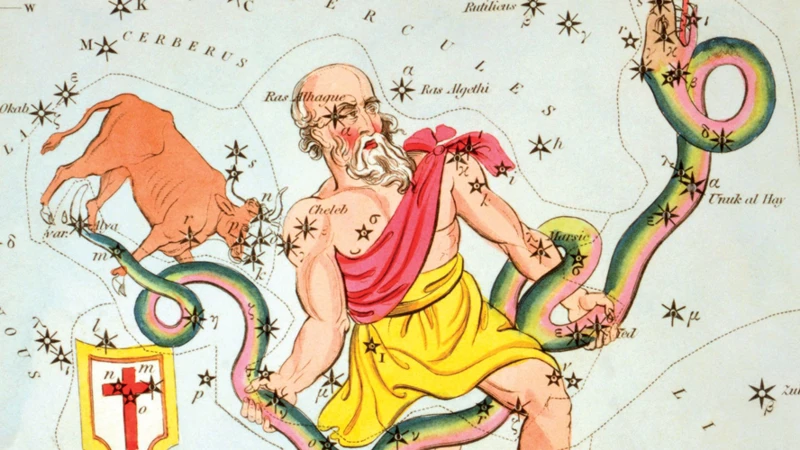
Beowulf, the central figure of this heroic saga, is a celebrated warrior of unmatched strength and courage. With his bold and fearless demeanor, Beowulf embodies the epitome of a true hero, driven by a sense of duty and honor. He is relentless in his pursuit to protect the innocent and vanquish evil. Grendel, on the other hand, is the monstrous antagonist that terrorizes the land, known for his merciless attacks on the people of Denmark. Beowulf’s encounter with this formidable foe sets the stage for an epic battle that will test his mettle and showcase his boundless bravery. Grendel’s Mother, a fearsome and vengeful creature, seeks retribution for the death of her son, adding another layer of danger to Beowulf’s journey. Both Grendel and his mother represent the darkness that Beowulf must conquer to fulfill his destiny as a legendary hero.
Beowulf
Beowulf is the legendary hero whose name is synonymous with courage and valor. As the protagonist of the story, Beowulf embodies the ideals of a true warrior. He possesses exceptional strength and fearlessness, making him a formidable adversary to any foe he faces. Beowulf’s unwavering determination and unwavering resolve drive him to protect the kingdom of Denmark from the monstrous threats that plague its citizens. His unwavering loyalty and commitment to his people are not only admirable but also serve as a source of inspiration. Throughout his journey, Beowulf demonstrates his bravery time and time again, facing deadly battles and overcoming seemingly impossible odds. He is a symbol of heroism and serves as a reminder of the triumph of good over evil. Beowulf’s legendary exploits have echoed through the ages, cementing him as a timeless hero in literature and myth.

Learn more about the mythical world of Medusa Gorgon and the influence of Ophiuchus in the realm of art.
Grendel
Grendel, the malevolent antagonist in the epic tale of Beowulf, is a monstrous creature who instills fear and terror into the hearts of the people of Denmark. As the descendant of Cain, Grendel embodies pure evil and darkness. Described as a “shadow-stalker” and a “dweller in the moors,” Grendel is a creature of the night, lurking in the darkness, preying upon innocent victims. His physical appearance is grotesque, with long claws and a hideous, malformed body. Grendel’s relentless attacks on the kingdom of Denmark leave the once prosperous land in ruins and its people living in constant fear. He is driven by a deep-seated hatred for the joy and merriment found in Heorot, the grand hall of the Danish warriors. Grendel’s insatiable hunger for destruction propels him to relentlessly slaughter the warriors of the kingdom, leaving a trail of bloodshed and despair in his wake. His brutal acts of violence are motivated by his envy of human happiness and his desire to subvert it. Grendel’s presence embodies the primal forces of chaos and darkness, challenging Beowulf to confront the depths of his own courage and honor in order to overcome this monstrous foe.
Grendel’s Mother
Grendel’s Mother, a fearsome and vengeful creature, is a pivotal character in the epic story of Beowulf. She is portrayed as a monstrous being, dwelling in an underwater lair, seeking revenge for the death of her son at the hands of Beowulf. Grendel’s Mother is described as a powerful and cunning opponent, capable of great physical strength and dark magic. In the midst of her grief and anger, she emerges from the depths of the murky waters to terrorize the kingdom of Denmark. The battle between Beowulf and Grendel’s Mother is a climactic moment in the hero’s journey, as Beowulf confronts this formidable foe in her watery domain. The encounter tests Beowulf’s courage and strategic prowess as he dives into the treacherous waters to face the wrath of this monstrous creature. The battle is intense and fierce, with both adversaries unleashing their full strength and cunning. Ultimately, Beowulf triumphs over Grendel’s Mother, slaying her with a powerful sword that he discovers in her lair. This victory solidifies Beowulf’s position as a legendary hero and marks a turning point in his journey of self-discovery and redemption. The defeat of Grendel’s Mother paves the way for Beowulf’s subsequent reign and establishes his legacy as a hero of unmatched valor. (For more information on mythical creatures like Grendel’s Mother, check out this article about Ophiuchus and Taurus compatibility.)
The Call to Adventure
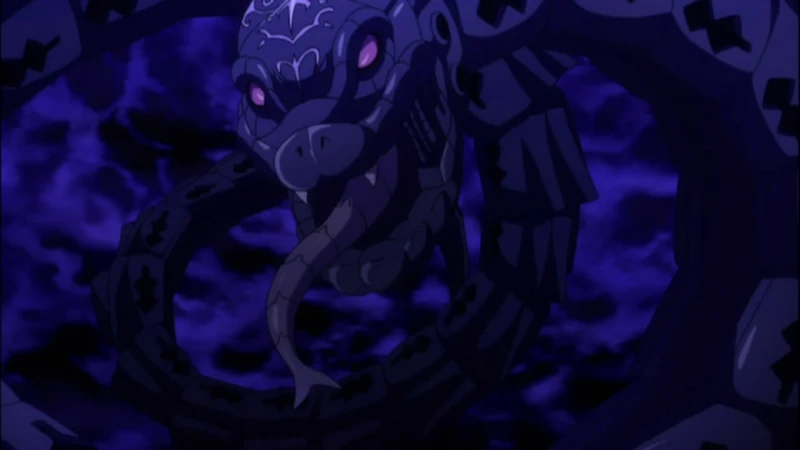
Beowulf’s journey begins with the call to adventure, as he sets sail to the kingdom of Denmark in response to the pleas for help from King Hrothgar, whose people are being terrorized by the ruthless attacks of Grendel. Upon his arrival, Beowulf’s reputation as a mighty warrior precedes him, and he is welcomed with open arms. The locals, desperate for relief from Grendel’s wrath, place their hopes and trust in Beowulf’s ability to rid them of this menacing threat. The call to adventure is marked by the realization that Beowulf is their only salvation, and the hero answers the call with unwavering determination and unwavering resolve. He stands ready to face the unknown and confront the beast that has plagued the kingdom, stepping boldly into the darkness that awaits him.
Beowulf’s Arrival in Denmark
Beowulf’s Arrival in Denmark marks the beginning of his heroic journey. Upon hearing of the troubles plaguing the kingdom, Beowulf sets sail with a band of loyal warriors to assist their Danish allies. They arrive on the shores of Denmark, their longships cutting through the turbulent waters, as Beowulf’s strong presence commands attention. The Danish king, Hrothgar, welcomes Beowulf with open arms, grateful for his arrival and hopeful for the salvation he may bring. The bustling halls of Heorot, the magnificent mead hall, become the setting for Beowulf’s first encounter with the menacing Grendel. The scene is set, tension fills the air, and the stage is ready for the clash between the hero and the monster that will test Beowulf’s strength and prowess. The atmosphere is rife with anticipation as Beowulf prepares to face the daunting challenges that lie ahead, fully embodying the role of the valiant hero in his quest to protect the kingdom and defeat the forces of darkness.
Grendel’s Attacks
Grendel’s Attacks are a pivotal moment in the story of Beowulf, as they mark the catalyst for the hero’s journey. Grendel, an enormous and ferocious monster, haunts the mead hall of King Hrothgar in the kingdom of Denmark. Night after night, he mercilessly attacks the brave warriors who gather there, leaving a trail of death and destruction in his wake. Grendel’s attacks are characterized by their savage brutality, as he tears apart his victims with his bare hands, instilling fear and despair in the hearts of the people. His relentless onslaught creates a sense of helplessness and hopelessness among the Danes, as they struggle to find a way to defeat this formidable foe. The terror and devastation caused by Grendel’s attacks set the stage for Beowulf’s arrival and his subsequent quest to rid the land of this monstrous menace.
The Hero’s Journey Begins
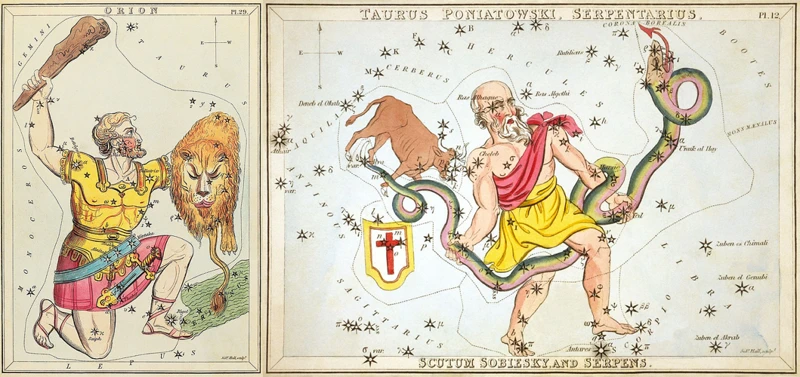
As the hero’s journey unfolds, Beowulf’s arrival in Denmark marks the commencement of his fateful quest. Word of his valor and strength precedes him, capturing the attention of King Hrothgar, who seeks his aid in defeating the monstrous Grendel. Beowulf’s boast, a testament to his skills and determination, fills the halls with anticipation as he confidently declares his intent to rid the kingdom of the relentless menace. The stage is set for the ultimate battle between the hero and the fearsome creature. With unwavering resolve, Beowulf confronts Grendel head-on, showcasing his extraordinary strength and unwavering bravery. The clash between these formidable opponents sets the tone for the hero’s journey, a test of courage and prowess that will define Beowulf’s legacy for generations to come.
Beowulf’s Boast
Beowulf’s Boast is a pivotal moment in the hero’s journey, showcasing his strength, bravery, and self-assurance. As Beowulf arrives in the land of the Danes, he boldly declares his intentions to King Hrothgar. In his boastful speech, Beowulf recounts his previous feats of valor and makes grand claims of his ability to defeat Grendel. He proudly proclaims, “My lord Higlac might think less of me if I let my sword / go where my feet were afraid to, if I hid / behind some broad linden shield: my hands / alone shall fight for me, struggle for life / against the monster” (lines 681-685). With these words, Beowulf showcases his unwavering confidence and refusal to back down from any challenge. His declaration not only impresses King Hrothgar and the people of Denmark, but it also sets the stage for the epic battle that will soon ensue. This moment in the story highlights Beowulf’s larger-than-life personality and his belief in his own prowess as a hero, making it a significant step in his journey.
The Battle with Grendel
The Battle with Grendel
In the climactic encounter known as the Battle with Grendel, Beowulf faces off against the fearsome monster who has been wreaking havoc on the kingdom of Denmark. With his superhuman strength and unwavering determination, Beowulf proves himself to be a formidable opponent to Grendel. As the night falls and the mead-hall becomes shrouded in darkness, Beowulf waits, his heart pounding with anticipation. Grendel, driven by his insatiable hunger for destruction, bursts into the hall, his grotesque form illuminated by the flickering torchlight. A fierce and intense struggle erupts between the two adversaries as they exchange powerful blows. Beowulf’s prowess and valor are on full display as he grapples with Grendel, finally dislocating the monster’s arm. The battle unleashes a cacophony of screams and roars, echoing through the hall, as the forces of good and evil collide with a titanic force. In a final act of desperation, Grendel attempts to escape, but his fate has been sealed. Beowulf, with an unyielding grip, tears off Grendel’s arm, sending the wretched creature fleeing into the darkness, defeated and on the brink of death. The mead-hall, once a place plagued by fear, is now filled with triumphant cheers and cries of victory. This epic clash is a pivotal moment in Beowulf’s journey, solidifying his reputation as a legendary hero and setting the stage for the battles yet to come.
The Abyss
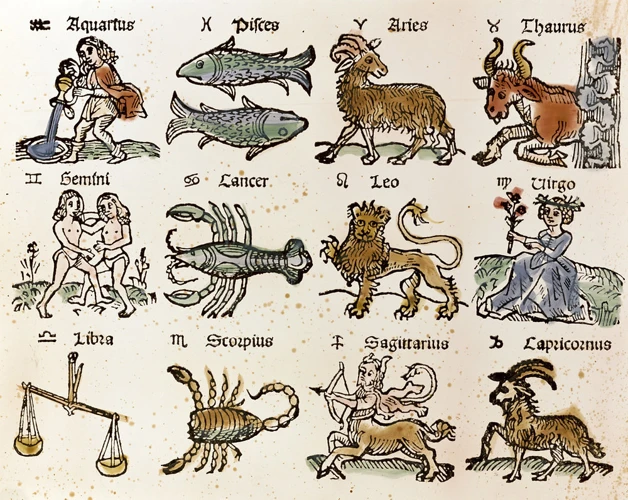
The Abyss in the story of Beowulf marks a critical turning point in the hero’s journey. It is during this stage that Beowulf faces his most daunting challenge—the battle with Grendel’s Mother. This fierce and formidable creature, seeking vengeance for her son’s demise, lures Beowulf into the dark and treacherous depths of her underwater lair. The Abyss represents not only a physical descent into a dangerous realm but also a metaphorical plunge into the depths of the hero’s own inner turmoil. In this harrowing confrontation, Beowulf must confront his own fears, doubts, and vulnerabilities. The battle that ensues is a test of Beowulf’s strength, resilience, and determination. It is in this moment that Beowulf realizes that true heroism extends beyond physical prowess and demands unwavering resolve and courage in the face of seemingly insurmountable odds.
The Battle with Grendel’s Mother
The Battle with Grendel’s Mother is a pivotal moment in Beowulf’s heroic journey. After successfully slaying Grendel, Beowulf faces yet another formidable opponent – Grendel’s Mother. Determined to avenge her son’s death, she is a creature of immense strength and ferocity. The battle takes place in the treacherous depths of her lair, a dark and forbidding underwater cavern. Beowulf, armed with a mighty sword, plunges into the depths to confront this fearsome foe. The fight is intense, with both combatants unleashing their full might. Grendel’s Mother proves to be a formidable adversary, nearly overpowering Beowulf at times. However, true to his heroic nature, Beowulf perseveres. In a moment of desperation, he spots an enchanted sword, a weapon designed to slay supernatural beings. With a swift strike, he deals a fatal blow to the monster, ultimately vanquishing her. The Battle with Grendel’s Mother showcases Beowulf’s unwavering determination and showcases his ability to overcome seemingly insurmountable odds. This triumph further solidifies his status as a legendary hero, leaving a lasting impact on the tale of Beowulf.
Beowulf’s Death
Beowulf’s Death marks a pivotal moment in the epic saga, as the aging hero faces his final battle against a formidable adversary. In his twilight years, Beowulf encounters a fierce fire-breathing dragon that threatens his kingdom. Despite his advanced age, Beowulf valiantly faces the dragon, displaying unwavering courage and determination. The battle is intense and fraught with danger, as the dragon’s fiery breath and razor-sharp claws pose a grave threat to Beowulf’s life. In a dramatic turn of events, Beowulf’s trusted comrade, Wiglaf, proves his loyalty and valor by coming to Beowulf’s aid, reinforcing the theme of honor and loyalty throughout the epic. Together, they engage in a fierce struggle, but Beowulf is mortally wounded in the process. As Beowulf nears his end, he reflects on his life and valiant deeds, ensuring that his legacy lives on. Wiglaf, witnessing the hero’s imminent demise, mourns his leader’s passing. The death of Beowulf marks the end of an era, as the kingdom mourns the loss of its beloved hero and prepares for a new chapter in its history. Through his demise, Beowulf’s noble sacrifice and unwavering dedication to his people serve as a testament to the timeless qualities of heroism and selflessness.
The Transformation and Atonement
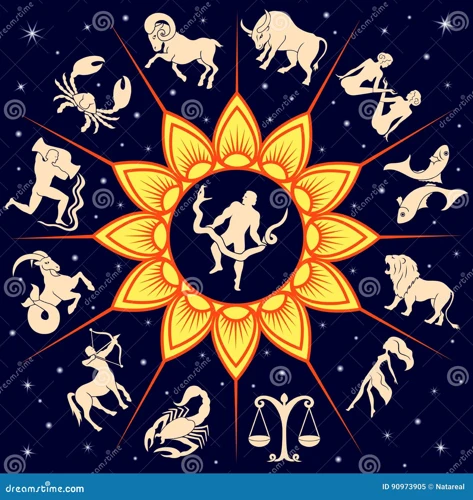
As the epic tale of Beowulf unfolds, the protagonist undergoes a profound transformation and seeks atonement for his actions. Beowulf’s journey, filled with harrowing battles and monumental victories, shapes him into a wise and legendary figure. Through his exploits, Beowulf not only proves his physical prowess but also evolves into a leader who values the greater good above all else. The hero’s atonement comes in the form of his final battle, where he faces a formidable foe and ultimately sacrifices his own life to ensure the safety and prosperity of his people. This selfless act of bravery solidifies Beowulf’s legacy as a true hero and serves as a testament to the transformative power of redemption. The story of Beowulf is not merely a tale of heroism, but also a narrative that explores the complexities of character growth and the redemption that can be found amidst the trials and tribulations of one’s journey.
Beowulf’s Legacy
Beowulf’s Legacy is a testament to the enduring impact of his heroic deeds and the values he embodied. After successfully defeating Grendel and his vengeful mother, Beowulf’s fame and reputation spread far and wide. He returned to his homeland, Geatland, where he ruled as a wise and just king for many years. During his reign, Beowulf’s courageous exploits became legendary, inspiring future generations of warriors and leaders. His unwavering commitment to honor, loyalty, and bravery served as a model for others to follow. Beowulf’s legacy also extended beyond the realm of warfare, as he was known for his generosity and benevolence towards his subjects. He rewarded his loyal warriors with lavish gifts, ensuring their loyalty and devotion. These acts of kindness and fairness solidified Beowulf’s place in history as not only a hero but a compassionate leader. Even in death, Beowulf’s legacy lived on, as he was mourned by his people and his noble deeds continued to be recounted in tales and songs, inspiring future generations to strive for greatness.
Rebirth and the Return
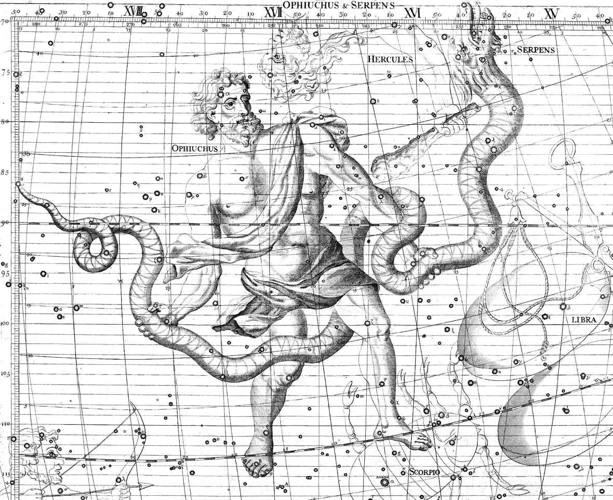
In the phase of “Rebirth and the Return,” the story of Beowulf takes a poignant turn as we witness the final chapters of our hero’s epic journey. Having valiantly fought and defeated Grendel and his monstrous mother, Beowulf has emerged triumphant, but not unscathed. The toll of his battles is evident, both physically and emotionally. However, true to his indomitable spirit, Beowulf remains committed to his duty until the very end. As the weight of his role as a leader and protector bears down on him, Beowulf’s legacy becomes ever more pronounced. The inevitable end approaches, and it is in Beowulf’s burial, where the hero’s journey truly comes full circle. In death, Beowulf is laid to rest with great honor and reverence, his name carved into the annals of history as a testament to his extraordinary valor and selflessness. Through his courageous deeds, Beowulf’s legend lives on, inspiring generations to come to embrace their own heroic potential.
Beowulf’s Burial
Beowulf’s Burial marks the poignant conclusion of this epic tale, as the fallen hero is laid to rest in a grand ceremony befitting his legendary status. After Beowulf’s valiant battle against the dragon, he succumbs to his injuries, leaving behind a legacy of bravery and heroism. His loyal followers mourn his passing, and preparations are made for his burial. A magnificent pyre is constructed, adorned with treasures from far-flung lands and symbols of his victories. The pyre is set ablaze, flames reaching towards the heavens as a testament to Beowulf’s indomitable spirit. As the fire crackles and consumes the wood, Beowulf’s loyal warriors bid their final farewell to their fallen leader. They honor him with solemn words, recounting his heroic deeds and the lasting impact he has made on their lives. The ashes of Beowulf, the mighty hero, are then collected and placed in a grand tomb, a solemn reminder of his sacrifice and the endurance of his legend. In the end, Beowulf’s burial becomes a symbol of his immortality, as his memory lives on in the hearts of those who witnessed his heroic journey.
Conclusion

In conclusion, the story of Beowulf: A Hero’s Journey leaves a lasting impact on its readers. It not only captivates our imagination with its vivid descriptions, thrilling battles, and mythical creatures, but it also explores profound themes of heroism, mortality, and the struggle against evil. Beowulf’s legacy lives on, inspiring generations to embrace bravery in the face of adversity and to protect their communities from harm. The tale reminds us of the timeless power of storytelling, as it has endured for centuries, continuing to resonate with audiences today. Through Beowulf’s triumphs and sacrifices, we are reminded of the importance of honor, loyalty, and selflessness. The story of Beowulf serves as a timeless reminder that heroism is not just about physical strength and valor, but also about the virtues that guide one’s actions. It teaches us that true heroes are those who rise to the occasion, face their fears, and fight for what is right. The saga of Beowulf will continue to fascinate and inspire readers for generations to come, as it stands as a testament to the enduring power of the hero’s journey.
Frequently Asked Questions
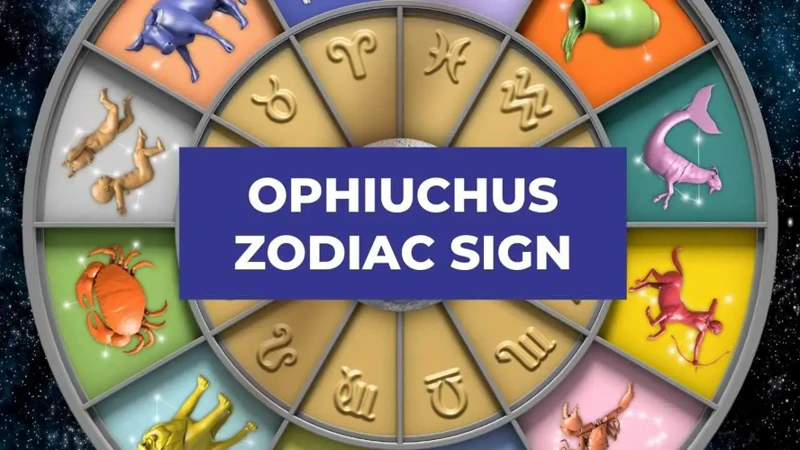
1. Who is Beowulf?
Beowulf is the legendary hero and protagonist of the ancient Anglo-Saxon epic poem, “Beowulf.” He is renowned for his exceptional strength, bravery, and his unwavering dedication to protecting the innocent.
2. What is the story of Beowulf about?
The story of Beowulf follows the hero’s quest to rid the kingdom of Denmark from the monstrous grip of Grendel and his mother. It explores themes of heroism, honor, and the eternal battle between good and evil.
3. Who is Grendel?
Grendel is a fearsome monster who terrorizes the people of Denmark. He is depicted as a relentless and bloodthirsty creature, driven by his hatred for humanity and compelled to unleash havoc and destruction.
4. What is the significance of Grendel’s attacks?
Grendel’s attacks symbolize the never-ending struggle between chaos and order, darkness and light. They serve as a call to action for Beowulf, prompting him to embark on his heroic journey and confront the forces of evil.
5. Who is Grendel’s Mother?
Grendel’s Mother is a formidable and vengeful creature who seeks revenge for the death of her son. She dwells in an underwater lair and possesses her own supernatural powers, making her a formidable opponent for Beowulf.
6. What is the “Abyss” in the story?
The “Abyss” refers to the pivotal moment in Beowulf’s journey when he faces the ultimate challenge: battling Grendel’s Mother. This symbolic descent into the depths represents a test of Beowulf’s strength, courage, and resolve.
7. How does Beowulf’s journey end?
Beowulf’s journey concludes with his ultimate sacrifice, as he faces a fearsome dragon in his old age, defending his kingdom one last time. Though he perishes in the battle, his legacy endures, leaving behind a legacy of heroism and honor.
8. What is Beowulf’s legacy?
Beowulf’s legacy is one of heroism and inspiration. His heroic deeds and selflessness serve as a reminder of the enduring power of courage and honor, influencing generations to come.
9. How does the story of Beowulf reflect Anglo-Saxon culture?
The story of Beowulf reflects the values and ideals of Anglo-Saxon culture, such as loyalty to one’s king, the importance of kinship, and the belief in fate and destiny. It provides insights into the society, customs, and beliefs of the time.
10. What makes Beowulf a classic hero’s journey?
Beowulf embodies the archetype of the classic hero’s journey, as he receives a call to action, faces and overcomes various trials and foes, experiences transformation and atonement, and ultimately leaves behind a significant impact on his world.
References
Frequently Asked Questions

1. Who is the main protagonist of Beowulf: A Hero’s Journey?
The main protagonist of the story is Beowulf, a legendary Geatish warrior.
2. What is the significance of Beowulf’s arrival in Denmark?
Beowulf’s arrival in Denmark marks the beginning of his heroic journey and the start of his quest to rid the land of the monstrous Grendel.
3. What are the characteristics that make Beowulf a hero?
Beowulf possesses extraordinary strength, courage, and noble ideals. He is also known for his loyalty, bravery, and determination in the face of danger.
4. Who is Grendel, and why does he attack the people of Denmark?
Grendel is a fearsome monster, descendant of Cain, and he attacks the people of Denmark out of envy and resentment towards their happiness and prosperity.
5. What happens during the battle between Beowulf and Grendel?
During the battle, Beowulf manages to overpower Grendel, tearing off his arm and ultimately causing his death. This victory brings relief and joy to the people of Denmark.
6. What challenges does Beowulf face in the Abyss?
In the Abyss, Beowulf faces the daunting challenge of battling Grendel’s vengeful mother, who seeks retribution for the death of her son. This battle tests Beowulf’s strength and courage to their limits.
7. How does Beowulf meet his demise?
Beowulf meets his demise while fighting a fierce dragon in his old age. Despite his valiant efforts, he is fatally wounded during the battle.
8. What is Beowulf’s legacy?
Beowulf’s legacy lies in his heroic deeds and his unwavering commitment to protect others. He is remembered as a great warrior and leader who selflessly fought for the greater good.
9. How is Beowulf honored after his death?
After his death, Beowulf is given a grand and honorable burial. His people celebrate his life and mourn his passing, recognizing his immense contributions and sacrifices.
10. What lessons can we learn from Beowulf’s hero’s journey?
Beowulf’s hero’s journey teaches us the importance of courage, honor, and selflessness. It emphasizes the value of standing up against evil and protecting others, even in the face of great challenges and adversity.






